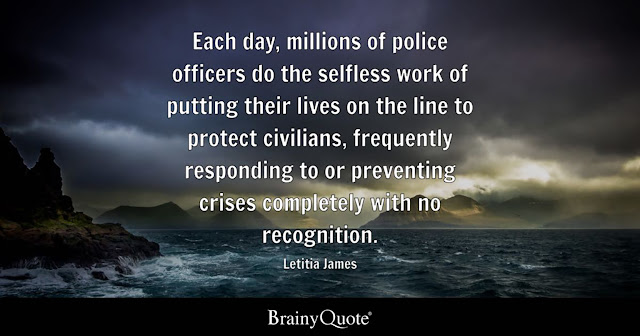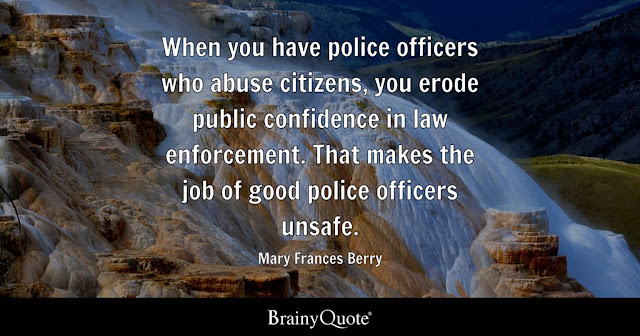By Jan S. Gephardt
We rarely think to ask a fundamental question: what should police do? What part should they play in a multicultural, representational democracy? The ubiquity of police forces around the world argues that many societies believe police do have a role in civilized life. But what – exactly – should it be?
As a novelist whose primary characters are science fictional detectives, I am in an unusual position, both to ask and to answer this question. But I believe it’s also a question everyone should ask. Especially every citizen in a representational, multicultural democracy.
Why should we ask? Isn’t the answer to that question obvious? Well, no. We’ve all grown up “pre-loaded” with conscious and unconscious attitudes and understandings of what police officers and police forces do, and why they exist. But clearly, those seldom-examined attitudes and understandings aren’t leading to very good outcomes. Not in much of the world. And certainly not here in the United States.
 |
| Many thanks to BrainyQuote. |
Asking as a Novelist
One of the best things science fiction does is hold up a mirror to society. If you think about it, all fiction does that in a certain way, because all fiction is a reflection of our experiences of life. I’ve written elsewhere about the role of the novelist in society. And yes, a fundamental aspect of our work is purely to produce entertainment.
But it’s not the only aspect. I would (and frequently do) argue that it may not even be the most important aspect, particularly in the realm of science fiction. That’s because science fiction is all about thought experiments.
When we start asking “what if?” a whole multiverse of possibilities opens up. What if a recent scientific discovery led to a new technological breakthrough? How would that change the world we live in? What if our society continues on its current course in this aspect, what might the future look like? How would our world change? How would we react?
So, as a novelist who writes about police in a future society, I must ask “What Should Police Do?”
 |
| Thanks again, BrainyQuote! |
Asking as a Citizen
But I’m also a citizen: of the world, and also specifically of my country and community. I’m a taxpayer, a voter, a member of “the public.” I can be sliced and diced out and defined demographically, culturally, and any other way you choose. Mother. Wife. Daughter. Woman. Educated. Teacher (retired). Middle class. United Methodist. White. Senior citizen. Democrat. Science fiction fangirl. Creative person. Animal lover. Multiculturalist. I am all of those things and more.
And as that complex, multi-aspect creature, I bring all of my experiences, understandings, and biases into my role as a responsible adult in contemporary society. For me, that involves an active interest in news and politics. I have formed some rather strong opinions over the course of my life. Each day I refine them or adjust them or reinforce them as I receive and process information.
I see it as my right – indeed, my responsibility – as a citizen to ask if my government and community leaders are representing me and governing in a way I think is appropriate. Are they respecting and honoring values I share? If they’re not, then I have a right to question them, and to seek better representation. As do we all.
This means, as a citizen in contemporary society, I must ask “What Should Police Do?”
 |
| You’re now 3-0, BrainyQuote! |
What Do We Ask Police To Do?
We currently ask police to fill a wide range of roles. “We’re asking cops to do too much in this country,” Dallas Police Chief David Brown said in a 2016 interview by the Washington Post. “We are. Every societal failure, we put it off on the cops to solve. Not enough mental health funding, let the cops handle it. … Here in Dallas we got a loose dog problem; let’s have the cops chase loose dogs. Schools fail, let’s give it to the cops. … That’s too much to ask. Policing was never meant to solve all those problems.”
I tend to agree with Chief Brown. As a teacher, I learned all too much about the many things our communities want to dump in the laps of their public servants. Usually while also underpaying them, restricting their operating budgets, and asking them to do work they never trained or signed up for. I get it, and I agree.
But what problems are the police meant to solve? Unlike some observers on the leftward end of the spectrum, I do believe there is a role for police in society. Unlike some observers on the rightward end of the spectrum, I don’t believe we will ever be well served by our current system. Certainly not when it’s focused on criminalizing poverty and mental illness. Not when it majors on crackdowns on minority populations and small offenders. And certainly not when it perpetuates the school-to-prison pipeline.
 |
| Graphic ©2023 by Statistia. |
What Problems WERE Police Meant to Solve?
If you were to ask the average “person on the street” this question, they’d probably say “Solve crimes,” or maybe “keep public order,” or perhaps “enforce the law.” Fair enough. So, how well are they doing?
Let’s take that first one, “solve crimes.” A look at the crime clearance rates (percentages of crimes that are cleared in a given year) is downright discouraging. “Clearance rate,” by the way, does not mean the full Law & Order-style litany of captured, charged, tried, and convicted. No, “clearance” means at least one person has been arrested and charged, or it means the probable perpetrator(s) are identified, but outside circumstances make arresting and charging them impossible. For two examples, circumstances could include that they died. Or maybe they’re in another country from which we can’t extradite them. Stuff does happen sometimes.
Clearance rates vary by the type of crime. But according to Statistia.com the only type that gets solved more than half the time in the USA is “murder and non-negligent homicide.” The clearance rate for that is 54.4%.
Flunking Crime-Solving
Think about it. That’s only a bit better than a 50-50 chance that any given murder will be solved. If I were grading a test and my student made a 54.4% on it, their grade would be an F (On a normal grading scale, 0-60% = an F). And that’s the best they do! You want them to solve your burglary? Sorry to tell you, but you have only a 14% chance that the perpetrator will be caught and charged with the crime. Someone stole your truck? Oh, dear. You only have a 12.3% chance they’ll ever arrest the thief.
So, basically, police in the United States flunk at crime-solving. Why? Well, there are a lot of reasons, and many of them are tied up in the other answers to the question “What should police do?”
 |
| Thanks yet again, BrainyQuote! |
What Should Police Do to “Serve and Protect”?
What does “keep public order,” “enforce the law,” or “protect people” look like, when it’s happening? Does “keeping public order” mean bulldozing camps of unhoused persons? Or imposing a curfew on a small population’s free movement during a specific part of the day or in a specific place? Does it mean beating or injuring protesters? The words “keeping public order” have been used to justify all of those actions.
On the other hand, it also could mean directing traffic away from an accident. Maybe it means repelling a violent insurrection from the Capitol. And it could mean shielding a person who has not been convicted of any crime from a lynch mob that wants to kill them. It’s an umbrella phrase, broad and nonspecific enough to be both used and abused.
Standards Without Clarification
And in the end, it’s not a very helpful standard without further clarification. The seemingly obvious “protect people” brings the same host of issues when we try to apply it to specific cases. Which people are the police to protect? From whom or what? In a racist, sexist society (don’t kid yourself: that’s this one), how many ways could that go wrong?
“Enforce the law” is only deceptively “more specific.” Does that mean “enforce all the laws, all the time?” By that standard, most of us should be, or should have been, arrested at many points in our lives.
People are fallible. There are times when we’re sick and can’t cut the noxious weeds in our front yard. Or we’re forgetful and only notice later that our driver’s license has expired. Perhaps we’re tired or in a hurry, so we jaywalked when we saw an opening, instead of walking down to the corner and waiting for the lights to change. Minor traffic violations, legally carrying a gun, or simply walking down the street have resulted in citizens being killed by police in the name of “enforcing the law.”
 |
| You rock, BrainyQuote! |
What SHOULD Police Do?
As we’ve seen, that’s a really problematic question! But, both as a citizen and as a novelist, I want to find better answers to it. I cannot endorse a blanket approach such as “abolish the police.” I’m not a fan of “defund,” either. Neither of those represent where I think this conversation should go.
On the other hand, a thoroughgoing interrogation of that “what should police do?” question isn’t going to deal kindly with old-school “cop culture.” Not with many contemporary police training techniques and approaches, either. Nor even with a fair number of contemporary laws and standards.
Yes, dear reader, you’ve probably figured out by now that I’m cueing up a series of blog posts on this topic. I’m not sure how long it’ll be. Considering our upcoming publication schedule, it most definitely won’t be every single post for the next umpty-dozen times without a break!
But over the next few months, I propose to take up one aspect of “what should police do?” at a time. I’ll examine how it’s currently being handled in the USA, survey the critiques, and then explain “how we handle it on Rana Station” and why I think that might work better. I hope you’ll find the series interesting.
IMAGE CREDITS
Many thanks to BrainyQuote (what would I have done without you for this post?) and Statistia.
No comments:
Post a Comment